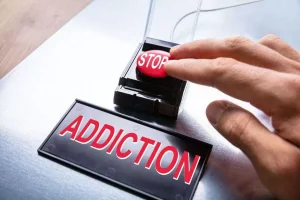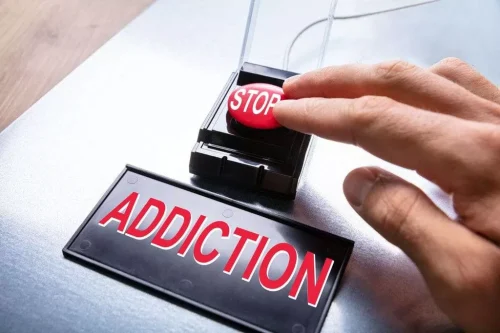
This document can be helpful letter to my addiction for individuals seeking employment, participating in sports or other activities that require proof of sobriety. If a person comes to you asking for help getting treatment, that may be your only chance to help them. If you fail to act the way you said you would in your letter, they may feel betrayed and like they overestimated the support they would have in their recovery journey.
Setting New Goals
- These compassionate souls offered a safe space to share your challenges, fears, and victories without fear of judgment.
- Addressing these underlying triggers can help individuals in recovery navigate their journey and maintain their progress.
- If you want an intervention to be effective, you need to make a genuine effort to help the individual.
- These are “good guy” letters; they describe what a “good guy”(or gal) a person is, but they’re not good for anything else.
- This may seem callous, but it’s important to remember that a person struggling with addiction isn’t the only individual involved in their problems.
In some cases, you may feel that your actions contributed to the issue at hand. Use simple and straightforward language to ensure that your message is easily understood. Someone living with addiction needs to know what they will be surrendering without getting help. You can be as strict or as lenient as fits your situation, but things like required program attendance and sobriety should be primary points in your restrictions.
- Over the years, we have shared countless memories and built a life together that I cherish deeply.
- Begin your letter by establishing that you care about the individual and emphasize that the signs you’ve noticed signal a serious problem.
- Your struggles with addiction became more apparent, and it was painful to see how much it affected you.
- He firmly believes that a lawyer’s job is to fix and make things better for the client.
- Highlight how your husband’s alcoholism affects the entire family unit and how seeking help can lead to a more stable and harmonious family life.
The dos and don’ts of helping a drug addict recover Maia Szalavitz Big Think
I believe in your strength and your ability to overcome this challenge. Please, my love, let us work together to build a healthier and happier future for ourselves and our family. Your health is too important to be compromised, and I will be here every step of the way to support and love you through this journey to recovery.
How To Offer Congrats And Support To Loved Ones In Sobriety
If your friend or relative has been sober for some time, you’ll probably want to congratulate them. You can offer to be a listening ear and provide any advice or guidance you may have that could help them in their journey. You can also share any resources such as recovery programs, support groups, and other helpful information that could be beneficial to their recovery. Evaluate the tone https://ecosoberhouse.com/article/5-reasons-sobriety-tattoos-are-a-terrible-idea/ to guarantee it aligns with your message of determination and hope. Seek feedback from trusted individuals, such as sponsors or therapists, to gain valuable insights and perspectives. Embrace revisions as opportunities to strengthen your letter and enhance its impact.
Why A Letter of Sobriety Can Make Or Break Your Chances of DUI License Restoration in Michigan

There were definitely moments when the pull of old habits felt almost overwhelming. Times when tempting whispers echoed in your mind, threatening to undo the progress you’d worked so hard for. In those challenging times, doubt clouded your focus, tempting you to fall back into familiar but destructive patterns. I remember when we first met in college, and how much fun we had together. Your energy and positivity were truly infectious, and you always knew how to lift everyone’s spirits. Your struggles with addiction became more apparent, and it was painful to see how much it affected you.
For most of us, this will include our spouse, children, and employers, support group members, including sponsors and accountability partners and close friends. Then narrow it down to about six people that know about your substance use and recovery history, and who would be willing to write a letter of support. Community support plays a vital role in reinforcing commitment to sobriety.
Sobriety strengthens connections with loved ones, based on trust, honesty, and mutual support. Strengthening these bonds not only provides companionship but also a network of encouragement during tough times. Your journey into sobriety commenced with that single, bold step, and since then, every passing day has served as a testament to your inner strength and determination. Each morning you wake with renewed purpose, reaffirming your commitment to reclaiming control over your life.

Is Addiction a Disease in Reality? Here’s The Answer
I long to see you not only overcome this addiction but also to thrive and live a healthier, longer life. You are worth the effort it takes to break free from the grip of alcoholism, and drug addiction treatment I will stand by your side every step of the way as you embark on this journey to recovery. The process of writing a commitment letter can be therapeutic in itself. It provides a safe space for you to express your thoughts, feelings, and emotions about your recovery journey. This emotional outlet can help you process complex emotions, such as guilt, shame, or fear, which are common in recovery.
- For the best results, the message should be delivered during a calm, low-stress period of the person’s life, ideally while they’re sober.
- I can provide additional references or documentation as needed from (employers, counselors, sponsors, and other connections you have made) if needed.
- These events not only mark significant dates like sober anniversaries, but they also create an atmosphere that reinforces the individual’s progress and bolsters their self-esteem.
- A letter can talk endlessly about what a charitable and kind person the petitioner is, and how they really need a license, but none of that matters a bit.
- I have this unwavering hope that we can break free from the grip of alcoholism together.

During the recovery process, there may be times when you feel discouraged or tempted to give up. Your commitment letter can serve as a source of motivation during these challenging times. Reading about your goals, intentions, and the reasons you’ve committed to recovery can reignite your determination and remind you of the importance of staying on track. It can help you focus on the bigger picture and the positive outcomes that await you on your journey.
- However, there’s another element that some people tend to overlook — your letters of support from friends, family, and co-workers.
- These milestones, from the first day sober to one year of sobriety, celebrate the triumph over addiction and the dedication required to remain sober.
- I spent months looking for a new career -and eventually spent months just looking for a “job.” Any job.
- We are all here because we care deeply about you, and we want to see you return to the person we know you can be.
- I know that you can overcome this addiction because I’ve seen glimpses of the incredible person you are when alcohol doesn’t hold you back.
Loved Ones Information

I believe that taking a family-centered approach is crucial because your alcoholism is not just your struggle; it’s something that affects each member of our family in profound ways. I want to emphasize that my decision is not driven by anger or resentment, but rather out of love and concern for you. I have seen the toll that alcoholism has taken on your physical and emotional health, and I am genuinely worried about your future if things continue in this direction. I believe in your ability to overcome this addiction and lead a fulfilling life, but that will require making some difficult choices. I’ve seen the efforts you’ve put into your journey towards sobriety, and I want to acknowledge and commend you for them.